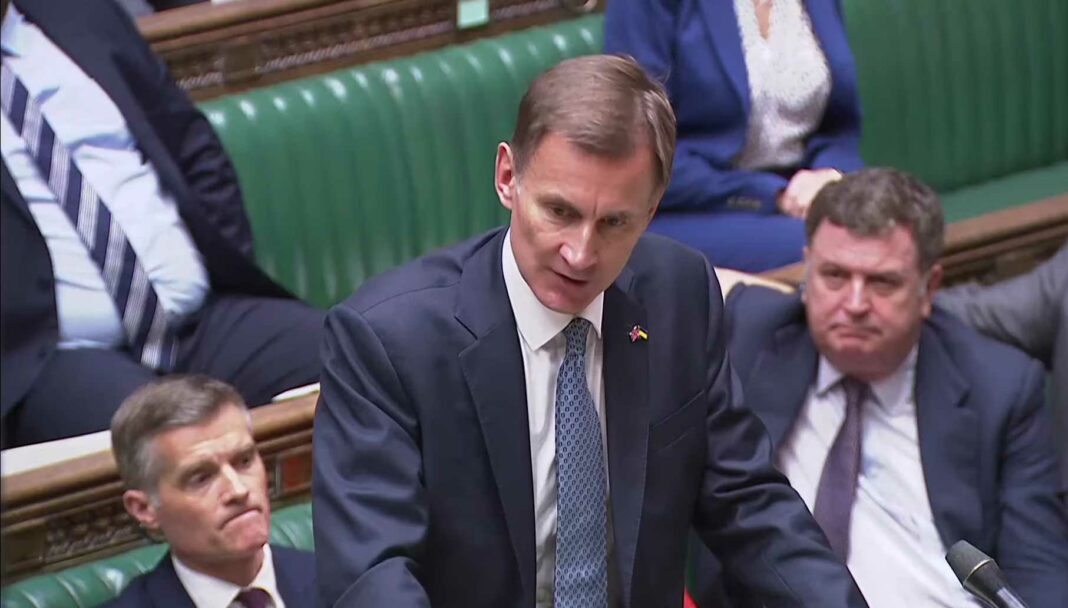17 NOVEMBER 2022 | ANALYSIS
The Chancellor, Jeremy Hunt, has today announced his economic plan to guide Britain through the cost-of-living crisis – here’s what it includes.
Major changes to taxation and spending cuts take to the forefront of his statement, as millions of people are set to pay more and budget increases to Government departments will slow down.
The threshold at which highest earners will pay the top rate of tax will be lowered from £150,000 to £125,140, which means more higher-earners will pay the highest rate of tax.
Mr Hunt has also confirmed a freeze in income tax thresholds, so millions more lower-earners will pay more in tax.
As major energy firms announced profit margins of trillions of pounds up from 2021 earlier this year, the current windfall tax on these profits will rise from 25% to 35%.
But from April, people will pay more in energy bills as the Government is set to reduce its support for households, meaning that typical bills will rise from £2,500 to £3,000.
However, those on low incomes, disability benefits and pensions will continue to receive state support.
Additional payments of £900 will be paid to those on means-tested benefits, meaning that they are assessed on income – £300 to pensioner households and £150 to people on disability benefits.
Also announced in the statement today is the decision to increase pensions by 10.1% in April, in line with September’s rate of inflation.
He says that, as a result, the Government will re-commit to its “triple lock” on the state pension.
For those under 23, the National Living Wage will be increased from £9.50 an hour to £10.42 in April.
Over the next two years, schools will receive an extra £2.3 billion and an increase in funding for the social care sector of up to £2.8 billion next year, with £4.7 billion the following year.
The Chancellor has also outlined an extra £3.3 billion in each of the next two years for the NHS budget, stating that “efficiency savings alone will not be enough to deliver the services we all need”.
But against the will of some Conservative MPs, such as Veterans Minister Johnny Mercer, defence spending will not be restored to 3% of GDP.
Instead it will remain at 2%, citing the need to support Ukraine through the invasion of Russian forces. Foreign aid will also remain at 0.5% of GDP, instead of returning to the previous 0.7%.
Mr Hunt told MPs this morning: “There is a global energy, inflation and economic crisis. But the British people are tough, inventive and resourceful…
“We aren’t immune to the headwinds, but with this plan for stability, growth and public services, we will face into the storm.”
He added: “There may be a recession made in Russia, but there is a recovery made in Britain.”
The Chancellor says he has presented “a balanced plan for stability, a plan for growth and a plan for public services.
“It shows that you don’t need to choose either a strong economy or good public services.”
However, Labour’s Shadow Chancellor Rachel Reeves blasted the statement, saying that “all the country got today was an invoice for the economic carnage that this Government has created.”
She also accused the Government of trying to pretend the economic and political turmoil caused by the September ‘mini-Budget’ devised by former Chancellor Kwasi Kwarteng was unrelated to domestic policy.
“What does the Chancellor have to offer today?,” Ms Reeves asked: “More of the same, with working people paying the price for his failure.
“The Chancellor should have come today to ask for forgiveness. At the very least, he could’ve offered an apology.”
She says “years of Conservative stagnation has left our country so much worse off”.
A significant point to take away from the Autumn Budget is that Mr Hunt acknowledges the UK has entered a recession, meaning two consecutive quarters – six months – of negative economic growth.
It comes as The Metro reports that unemployment is likely to jump to 5%.


























